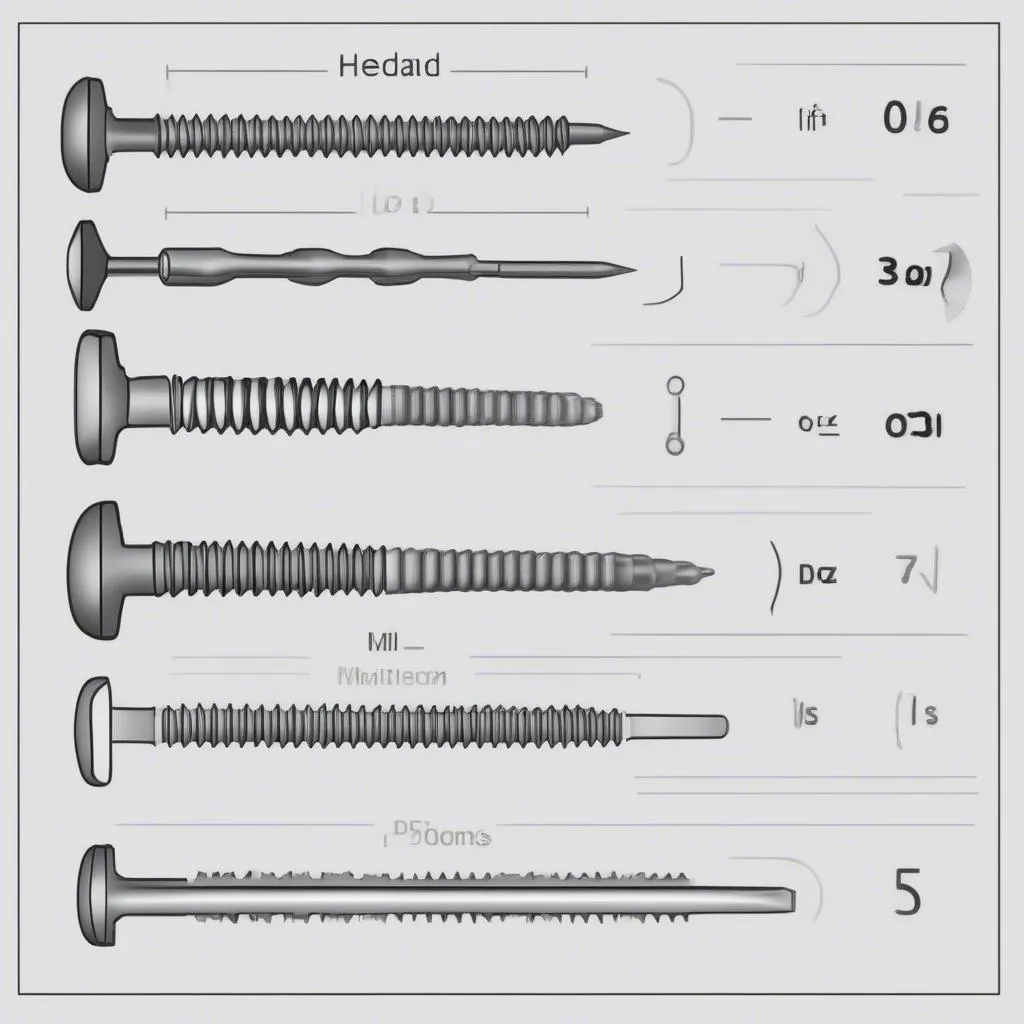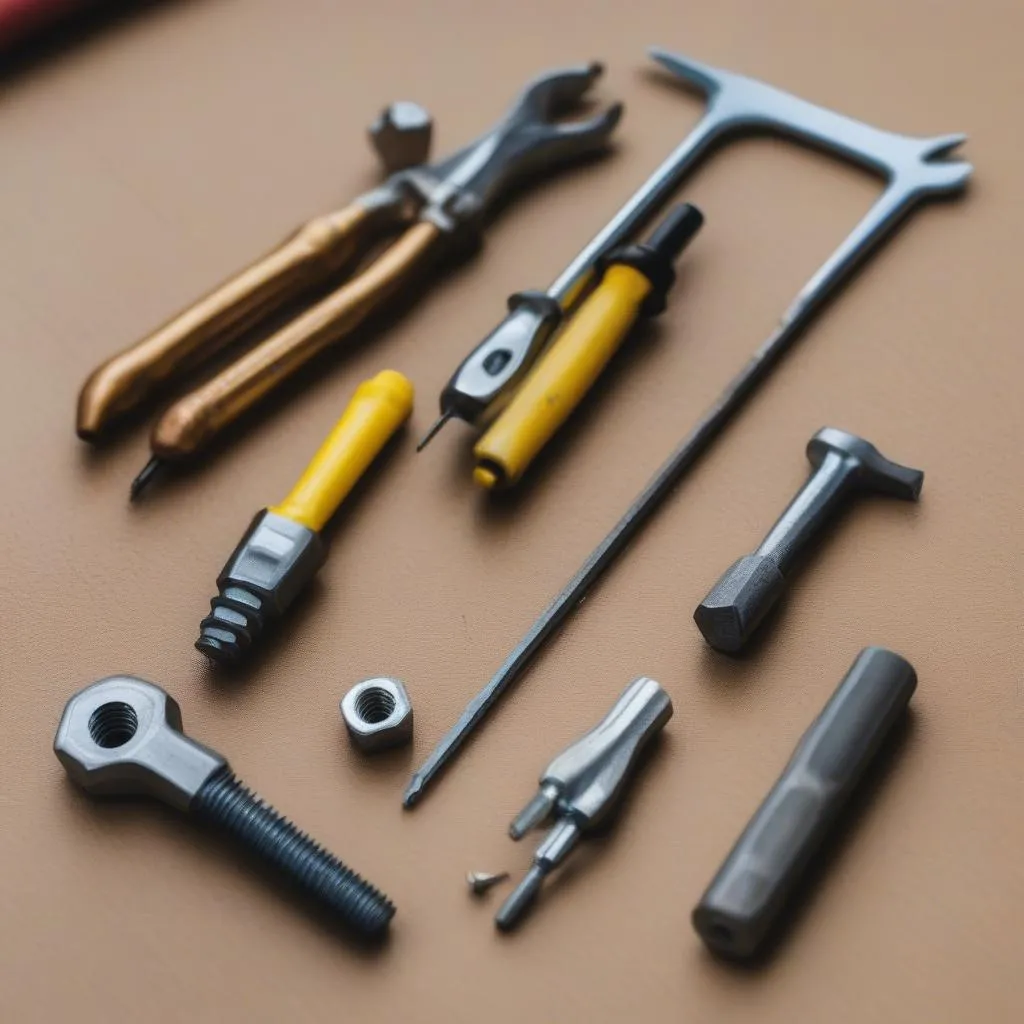Imagine this: you’re working on a repair job on your car, everything is going smoothly, and then suddenly, a screw comes loose. You reach for your toolbox, and it’s missing! This is a common problem that every car owner has faced at some point. Screws are an essential part of any car, holding everything together from the engine to the bodywork.
Why Are Screws Important?
From a Mechanic’s Perspective
For mechanics, screws are the building blocks of a car. They hold together critical components like the engine, transmission, suspension, and brakes. They ensure that these components are securely fastened and can withstand the forces and vibrations that come with driving.
From a Technical Perspective
Screws are designed to create a strong and secure connection between different parts of the car. They work by using the principle of friction to resist the forces that try to pull the parts apart.
From an Economic Perspective
Screws are relatively inexpensive to manufacture and can be easily replaced. This makes them an essential part of any car repair process and keeps the cost of repairs down.
Understanding Screws For Cars
Types of Screws
There are many different types of screws used in cars, each with a specific purpose. Some common types include:
- Phillips head screws: These are the most common type of screw found in cars and have a cross-shaped head that is easily driven with a Phillips screwdriver.
- Torx screws: These screws have a star-shaped head that requires a Torx driver. They are often used in applications where a higher torque is required, such as in the engine or transmission.
- Allen screws: These screws have a hexagonal head that requires an Allen wrench to drive. They are often used in applications where access is limited or where a tamper-resistant screw is needed.
Screw Sizes
Screws For Cars come in a variety of sizes, measured in millimeters. The most common screw sizes are:
- M4: Small screws used for light-duty applications, such as holding trim panels in place.
- M5: Medium-sized screws used for heavier-duty applications, such as fastening engine components.
- M6: Larger screws used for even heavier-duty applications, such as attaching the suspension system.
Identifying the Right Screws
When replacing screws on your car, it is crucial to identify the right type and size. Using the wrong screws can lead to problems, such as loose components or damage to threads.
Here are some tips for identifying the right screws:
- Check the old screw: If you’re replacing a screw, the best way to identify the right one is to check the old screw.
- Refer to the owner’s manual: Many owner’s manuals have diagrams and specifications for the screws used in your car.
- Use a screw gauge: If you’re not sure about the size of the screw, you can use a screw gauge to measure it.
It can be helpful to have a visual aid to understand the different types of screws and their sizes. Here’s a picture showing some common types of screws used in cars:  Types and Sizes of Screws Used in Cars
Types and Sizes of Screws Used in Cars
Common Questions About Screws For Cars
Where can I find screws for my car?
You can find screws for your car at most auto parts stores. When looking for screws, be sure to specify the type, size, and material you need. You can also find them online from retailers like Amazon or eBay.
How do I know what kind of screws to use?
It’s important to use the right screws for your car. If you’re not sure, check your owner’s manual or consult a mechanic.
How often should I replace screws?
Screws can become worn or damaged over time, especially if they are exposed to extreme temperatures or vibrations. If you notice any signs of wear or damage, you should replace the screws.
Do I need special tools to remove screws from my car?
You might need special tools to remove certain types of screws, such as Torx screws or Allen screws. Check your owner’s manual or consult a mechanic if you are unsure.
When to See a Mechanic
If you’re struggling to remove screws from your car or aren’t sure what type of screws you need, it’s best to consult a mechanic. They can help you identify the right screws and remove them safely.
Here’s an example of the tools you might need for removing screws from your car:  Tools for Removing Screws from a Car
Tools for Removing Screws from a Car
Conclusion
Screws are an essential part of any car and play a vital role in keeping your vehicle running smoothly. While it’s easy to overlook them, it’s important to remember that the right screws can make all the difference. By understanding the different types and sizes of screws, you can make sure your car is properly put back together and avoid any potential problems. If you have any questions or need help with screws for your car, please don’t hesitate to reach out. We’re here to help! Just contact us on WhatsApp: +84767531508.